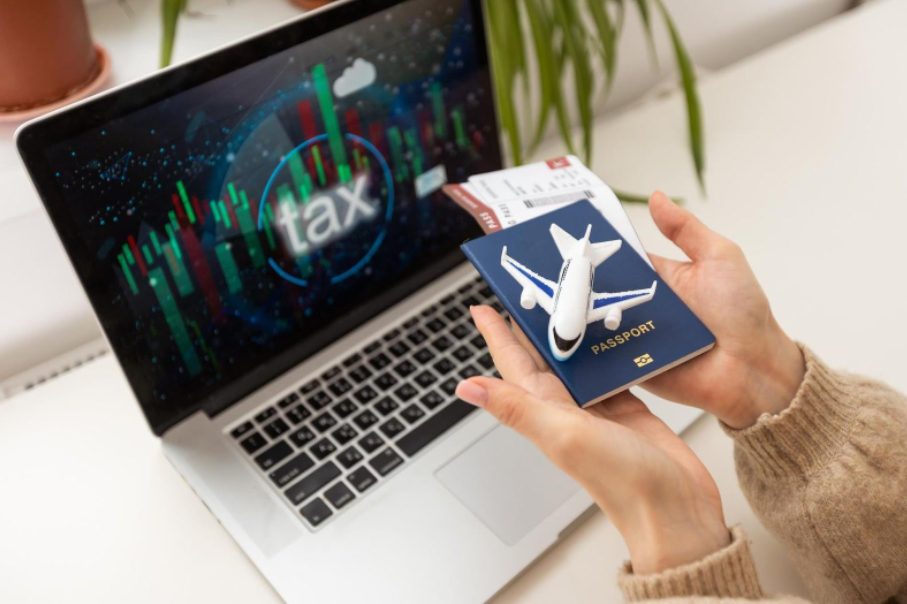The rich culture, reasonable cost of living, and excellent job prospects make Indonesia an alluring place to settle for expatriates. While immersing oneself in the local way of life is essential, so too is paying attention to the contours of this country’s tax obligations. The tax system concerns both local citizens and foreign residents of the country who meet certain criteria.
Noncompliance with the tax rules of this country may lead to penalties, fines, and legal complications, issues no expatriate wants to deal with. This article presents important tax compliance advice that will make your life easier in this nation while staying within the legal framework.
Assess Your Tax Residency Status: Your tax obligations.
The tax rates in this country vary depending on whether you are considered a tax resident. Under Indonesian law, you are a tax resident if: You are in this country for 183 days or longer in a year, or You intend to stay in this country permanently. A resident is taxed on income from anywhere in the world, both within and outside this country. Non-residents are only taxed on income from this country. Understanding your residence status is vital in computing your tax liability.
Apply for NPWP (Nomor Pokok Wajib Pajak)
By law, every individual must register for an NPWP (Nomor Pokok Wajib Pajak), which is issued in the form of a unique tax number. This NPWP is necessary for tax payment, in addition to being required for the opening of bank accounts and other financial dealings. Expatriates often need it for:
– Signing of employment contracts
– Property purchase and ownership
– Business registration
– Entitlement to certain public services
If you don’t have an NPWP yet, you can follow this complete guide to getting an NPWP in Indonesia for step-by-step instructions.
Understand the Indonesian Income Tax Rates
This country applies a progressive tax rate for individuals, ranging from 5% to 35% depending on your annual income. For the 2025 tax year, the brackets are:
- Up to IDR 60 million: 5%
- IDR 60–250 million: 15%
- IDR 250–500 million: 25%
- IDR 500 million–5 billion: 30%
- Above IDR 5 billion: 35%
Knowing these brackets helps in estimating taxes and planning finances accordingly.
Maintain Proper Records of Your Income and Expenditures
As an offshore procedural adjustment, it is required that one still maintain very important documents like salary slips, employment contracts, rental agreements, and receipts, to name a few. Along with that, keeping records for deductible education expenses and medical treatment is advisable. Having documents organized makes it easy for an individual to file their tax returns and insulates them from a tax audit.
Document Your Annual Tax Return Before the Deadline
Every tax resident must file an Annual Tax Return on or before March 31 of the following year. For instance, income for the year 2024 should be filed by March 31, 2025. There are two ways of filing taxes:
– Through DJP Online
– Offline at the local tax office
Late filing can result in penalties starting from IDR 100,000 for individuals, so mark your calendar and submit your return early.
Take note of Double Taxation Agreements (DTAs)
This country has DTAs with many countries, allowing them to avoid paying tax on their income twice. If your home country has a DTA with this nation, then you can get tax relief. For you to be eligible, you will need to: – Obtain a Certificate of Domicile (CoD) from your home country – Fill out the required forms for the Indonesian tax authority.
Think of hiring a Tax Consultant
Expatriates with multiple income sources or business activities find the Indonesian tax system complicated. Tax consultants may:
– Ensure accuracy on your tax filings
– Assist you in legally claiming all possible deductions
– Represent you in case of audits or disputes
This may add to your expenses but the time, legal challenges, or trouble it can save you is well worth the investment.
Final Thoughts
Though tax compliance appears to be overwhelming at first glance, it can be handled with ease through due knowledge and preparation. Your first step would be to determine your residency status, register for an NPWP, and keep proper records. You can just contact ILA Global Consulting for that thing. Filing your taxes on time and taking the help of professionals would thus make you tax compliant without unnecessary penalties.
If you still don’t have your NPWP, check out this step-by-step guide on NPWP to get started today. Pragmatic information retention and staying ahead can enable one to well-make out their life in this country and stay utterly compliant with the tax laws of the country.





























